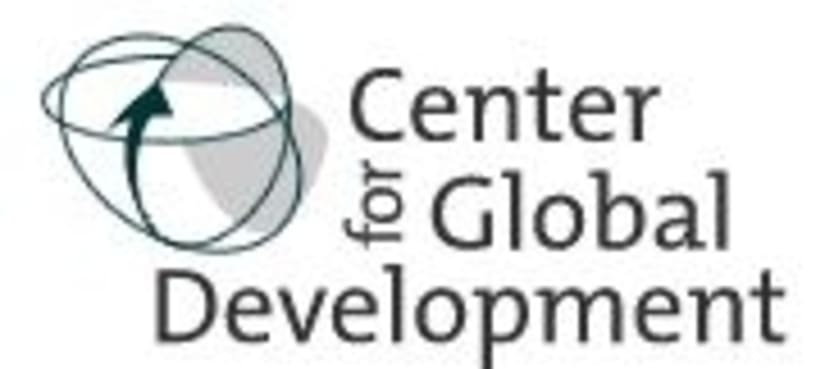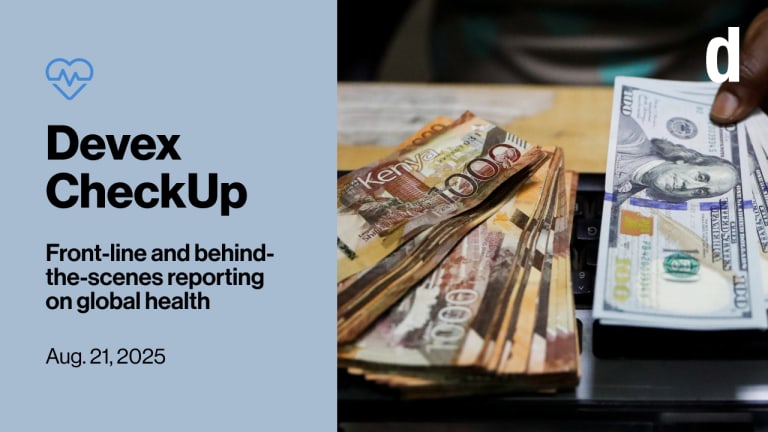
EDITOR’S NOTE: Is the Global Fund on the right track? Center for Global Development research fellow Victoria Fan writes why she is “very encouraged and hopeful” in her article in the Global Health Policy blog.
Amidst tough times, The Global Fund to Fight AIDS, Tuberculosis and Malariais rapidly transforming for the better. After negative, if not slightly hysterical, press from cases of fraudulent spending (that the Global Fund itself discovered and reported in 2010), compounded by doubts among certain bilateral donors on the sustainability and efficiency of the Global Fund, the newly appointedtemporary General Manager Gabriel Jaramillo and his team has moved forward to “transform” the Global Fund with considerable speed and deftness, restoring confidence among bilateral donors (such as Japan and several others) and country recipients as well as improving morale among the Fund’s staff. What are some of these fast-moving changes? And will these changes help the Fund to achieve better health outcomes?
Today Debrework Zewdie, the Deputy General Manager of the Global Fund, spoke on “The Global Fund at Ten Years: Reflecting on its Impact and Looking Forward to Challenges Ahead”, followed by extensive Q&A at the Council for Foreign Relations. Her brief remarks summarized the immense challenges of undertaking the Consolidated Transformation Plan (see Jaramillo’s slides here for more details). In particular, I am very encouraged about the prospect of two changes: (1) the creation of a new Division called ‘Strategic Investment and Impact Evaluation’ which will shape the optimal portfolio of investments by country and disease (rather than its prior ad-hoc, or more kindly, its one-size-fits-all, approach), and (2) the creation of new committees for each disease (AIDS, Tuberculosis, and Malaria) that will meet monthly to discuss the bigger picture of the ‘disease war’, and not individual grant/country ‘battles’. Both of these have great importance for achieving better ‘value for money’.
The new Division and committees will both help ensure that the Fund’s portfolio obtains greater health gains for the funding invested. Whereas in the past there had been consternation among observers that the Technical Review Panel failed to consider the costs of interventions proposed by a country and did not optimize disease control strategies relative to spending in its set of countries, these two changes will help gain better ‘value for money’. Nevertheless, care should be taken to notmechanically allocate funding by disease burden, as it may be optimal to control diseases based on the population at risk or other factors in disease spread (in the case of malaria or tuberculosis for example). Furthermore, getting the mix of interventions funded right is as important as getting the right level of funding by country. Most encouraging is that the positions in this new Division will be staffed by those who manage grants and are in the grant-making team, and not external reviewers. We look forward to seeing that this new Division has the needed leverage in staff to optimize their current portfolio.
Zewdie also noted an increased focus on impact evaluation of Global Fund grants. This could also be a potentially huge improvement for getting better value for money. Zewdie mentioned that while the Global Fund had done some impact evaluation in the past, it had not been systemized and integrated with grants nor had external experts been sought (it would be nice to know more about these past impact evaluations). I asked Zewdie on the potential uses of impact evaluation, in particular for learning general lessons on delivery strategies which may be applicable to multiple countries and whether impact evaluation might be integrated with the Global Fund’s current ‘performance’-based financing(PBF) model. One new delivery strategy that Zewdie mentioned, for example, was better coordination and collaboration of the Global Fund with PEPFAR, starting in Nigeria and 1 other country. An impact evaluation of this strategy would greatly benefit other countries as well. Learning into better delivery strategies and approaches, if looped back into grant management, will give more value for money.
As for ‘performance’-based financing (PBF) and impact evaluation, although the Fund pioneered PBF, the current PBF approach has many limitations; most indicators are related to ‘outputs’ e.g. number of bed nets distributed (not a true measure of performance in health and vulnerable to unintended consequences) and decisions on disbursements have not necessarily related toperformance. But exactly how impact evaluation might be integrated with PBF will need careful thinking, so that such evaluation helps countries to learn and rewards them with successful, while avoiding bad incentives through harsh punishment (which is true for PBF in general). For the Global Fund to make appropriate connections between impact evaluation and PBF would be an important, if not forward-thinking, step among global health donors. Work at the Center for Global Development onCash on Delivery, with its approach on minimal indicators, independent verification, and public dissemination of indicators, may be useful as the Fund moves forward. By further creating incentives for countries to reach certain levels of performance, the Fund can also gain better value for money.
The challenge of conducting impact evaluation will require able staff with expertise in a wide array of tools for impact evaluation – which are not necessarily onerous with high costs. The methodologies ofimpact evaluation, largely from the fields of economics, political science, statistics and perhaps to a lesser extent epidemiology, have advanced, such that an array of quasi-experimental tools (e.g. staggered phase-in) can be employed without the burden of ‘randomization’ or exclusive surveys per se. Moreover, this work on impact evaluation may be used to build national health information systems which have been suffering from neglect in many countries in recent years despite the growth of global health funding.
I’m very encouraged and hopeful that the Global Fund is on the right track. I look forward to seeing these new changes and we hope our Value for Money working group will give useful recommendations to the Global Fund and other global health funding agencies to save more lives for the money.
(Thanks to Amanda Glassman, Denizhan Duran, and Jenny Ottenhoff for their very helpful comments.)
Republished with permission from the Center for Global Development. View original article.








